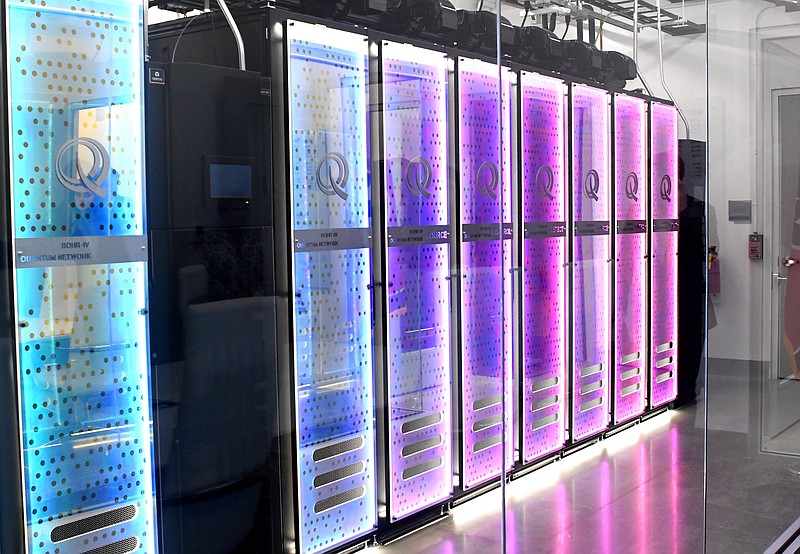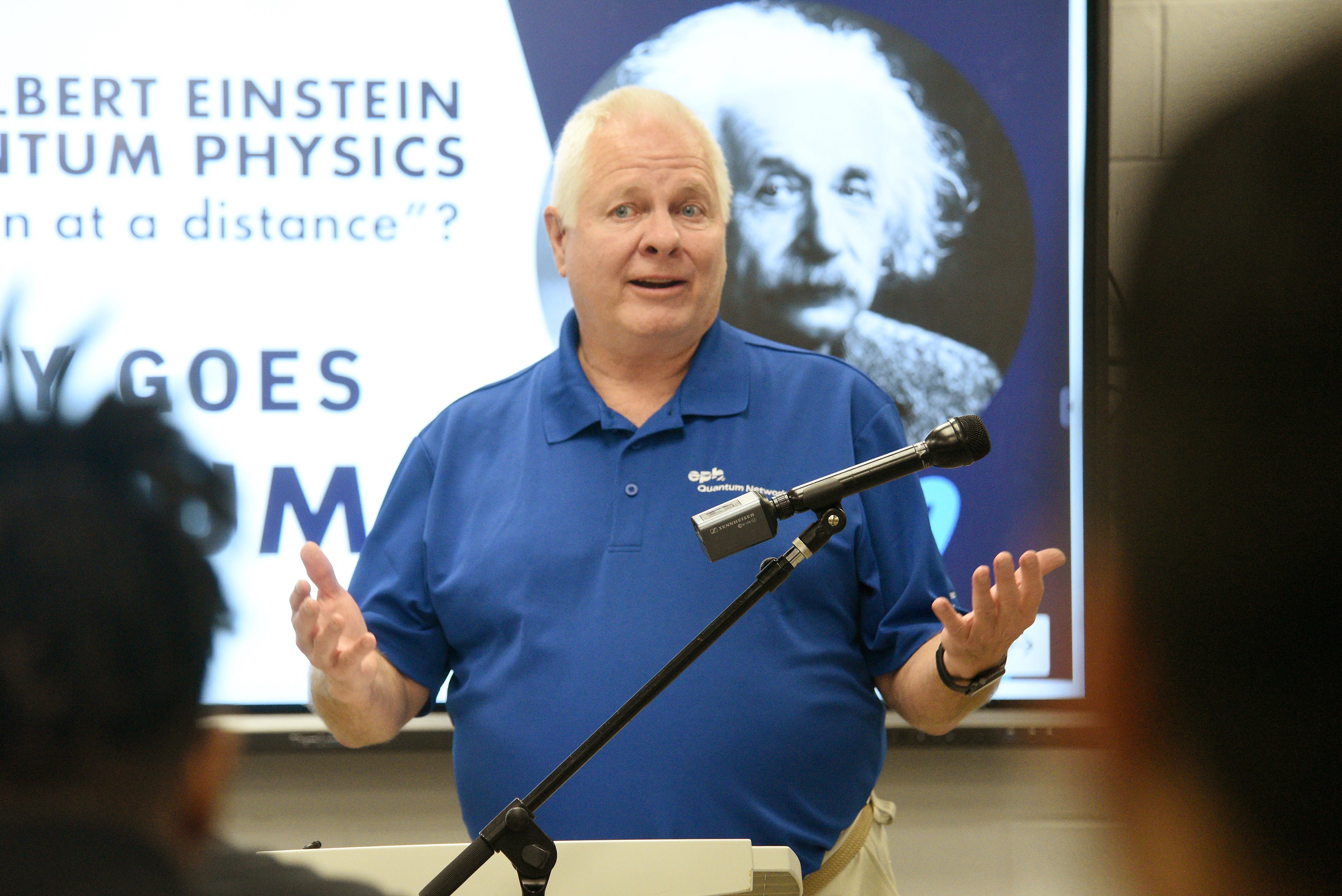After announcing America's first commercially available quantum network at the Quantum World Congress a year ago, EPB leaders from Chattanooga returned to the global gathering of quantum researchers and developers Thursday to tout new software applications to offer more flexibility and ease of access for those developing quantum technologies and applications.
EPB and the San Diego-based quantum development company Qubitekk developed the hardware for the quantum network over the past six years to create the nation's first commercially available quantum network built on EPB's fiber optic backbone in downtown Chattanooga. To provide the software to enable more and easier use of the new quantum network, EPB announced Thursday it has partnered with Aliro Quantum for its AiroNetTM system to help users take advantage of different network configurations.
"Designed specifically with quantum technology companies and researchers in mind, we make it simple for customers to configure EPB Quantum Network to their specifications," EPB President David Wade said in an announcement of the new software addition to the quantum network. "EPB Quantum Network removes barriers to commercialization for quantum developers who have not previously had access to these kinds of resources to advance their technology and is available now for scheduling."
EPB has invested $4.5 million to work with Qubitekk to develop the first commercial quantum network, which will help researchers, startup businesses and others develop new quantum-related inventions in Chattanooga.
(READ MORE: Quantum technologies to be tested in Chattanooga)
Through AliroNet's new graphical interface, customers can select from a range of predefined network configurations or engage EPB Quantum Network engineers to implement customized configurations, Wade said.
"This is a commercial quantum network that's really going to be a destination for developers of quantum products and solutions," Qubitekk President Duncan Earl said Thursday during a news conference at the Quantum World Congress in Tysons, Virginia. "They can come and use this network to test, to validate, to characterize and to run some of the software applications of the different quantum applications on this new network."
Economic leap
The business consulting firm McKinsey estimates the $2.34 billion spent last year on quantum technology startups for advanced computing, communications and sensing will grow to more than $1.3 trillion by 2035 as quantum technologies emerge for the automotive, chemical, financial services and life sciences industries.
Quantum computers are expected to be significantly faster than today's processors. While today's digital computers process information on a base of zeroes and ones, quantum networks will also process information using the decimals in between zero and one — allowing much larger volumes of data to be processed at significantly faster speeds.
Quantum-based communications reproduce a naturally occurring phenomenon in which a pair of light particles (photons) can be linked or 'entangled' such that any change in one of the photons is instantaneously mirrored by its twin even when they are separated by great distances. Tapping this technology paves the way for a network to support heavier computational capabilities than today's communications networks can handle and also can help encode signals and communications to ensure greater cybersecurity.
During the annual Governor's Conference on Economic and Community Development last week in Chattanooga, officials promoted the "Gig City Goes Quantum" initiative to recruit both businesses and workers to Chattanooga and to create a new technology hub in the area.
Global interest
EPB's quantum network has not signed up any users yet, but Wade said EPB is talking with a number of computer companies, research institutes and startup businesses about locating in Chattanooga to be able to use the new quantum network.
"Interest is growing in our quantum network, and we continue to see great interest and momentum among those coming in to sit down and talk about how they might use this network," Wade said in an interview at the GovCon event last week. "We had two CEOs from different companies fly into Chattanooga last week to talk to us, but we don't have anybody signed up yet."
Already, EPB and Chattanooga are gaining global attention for the quantum initiative, attracting more than 60 million media impressions through news and industry reports about Chattanooga's quantum network, EPB spokesperson J. Ed. Marston said.
Reset option
The addition of the new software options should open the way for more interest and use of the quantum network in Chattanooga, Earl said.
"Most quantum networks are designed to be static and not easily reconfigured to accommodate changes," said Earl, a former researcher at the Oak Ridge National Laboratory. "EPB Quantum Network is designed to be flexible for users' specific applications and can be reset for different projects."
Jim Ricotta, the chair and CEO of Aliro Quantum, said the innovators in the quantum space "are as unique as the technology they're testing on EPB Quantum Network.
"We're proud to be delivering the orchestration and control software that allows innovators to design and implement network configurations for their unique projects," Ricotta said in a statement released Thursday.
The EPB quantum network uses 216 dedicated, managed dark fibers with capacity for 10 quantum interconnected nodes across downtown Chattanooga and a separate, communitywide 9,000-mile fiber optic network to provide additional opportunity for scalability.
The network is managed by EPB, which launched the nation's first communitywide, high-speed Gig internet service in 2010 and now claims the world's fastest communitywide internet at speeds up to 25 Gig.
An economic study by University of Tennessee at Chattanooga Economist Bento Lobo estimates EPB's Gig service generated nearly $2.7 billion and 9,516 jobs in its first decade, and Mayor Tim Kelly said the quantum network could potentially be even bigger for Chattanooga.
Contact Dave Flessner at dflessner@timesfreepress.com or 423-757-6340.

